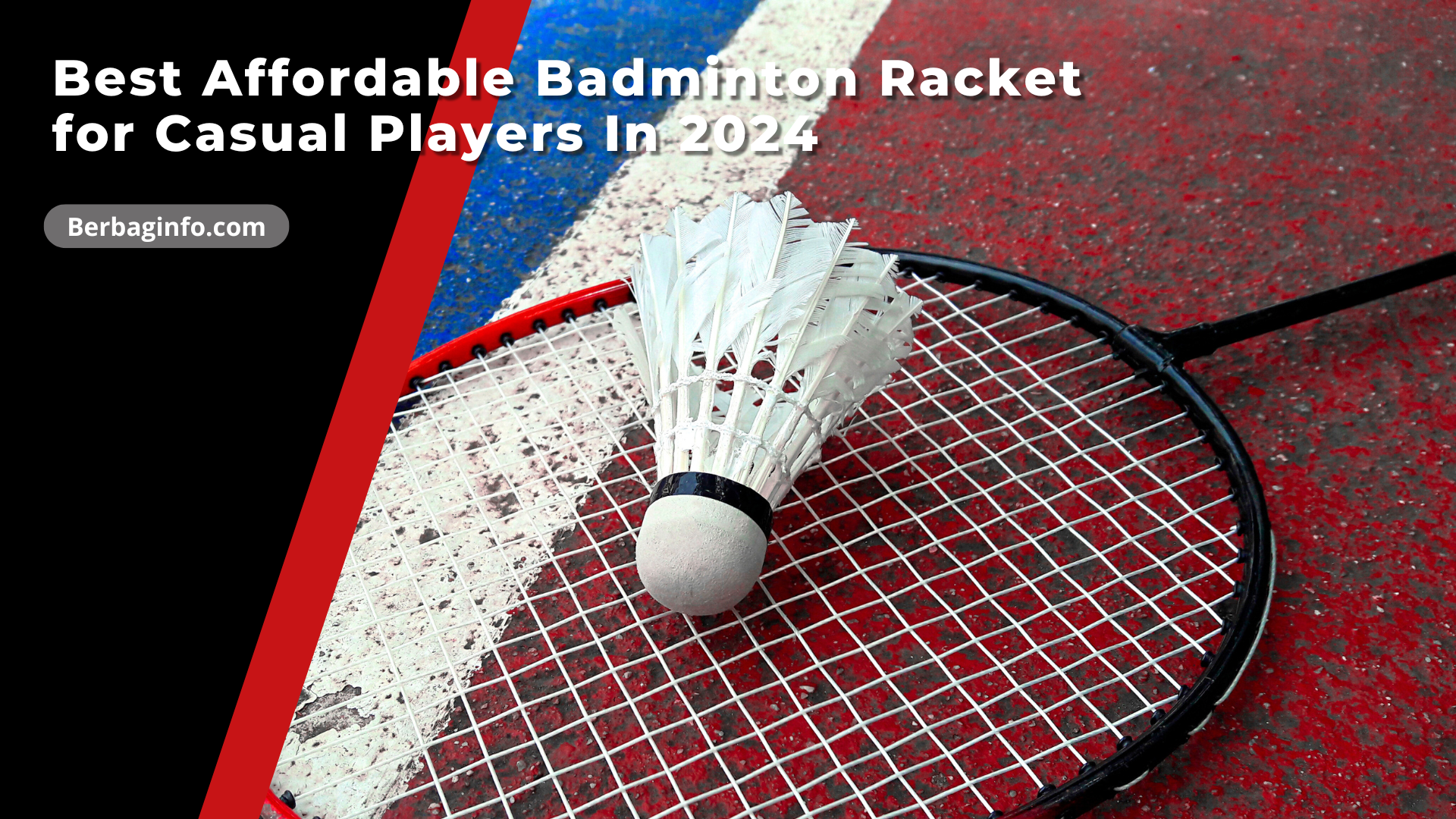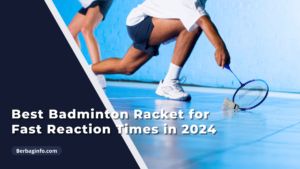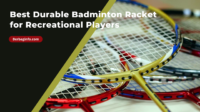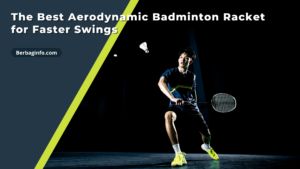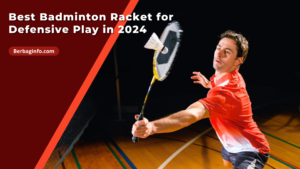Best Affordable Badminton Racket for Casual Players In 2024
Berbaginfo.com – If you enjoy playing badminton casually, then the racket that is right for your style of play can be a game changer. Both beginners and those on a low spending plan hoping to overhaul should choose the racket that will offer both ease of use and quality. So in this guide, we’re going to take a look at some of the top-performing affordable badminton racket available now that are ideal for recreational players looking to level up without breaking the bank. Combining lightweight and durable materials, these rackets are suited best to players looking for good value money as they aim play recreationally without any problem or pressure.
Features to Look for in a Casual Badminton Racket
1. Weight and Balance
Weight and balance are two areas that will play a major role in how you feel the racket. Lightweight racket is generally recommended for those who play casually because it eases the swing, making free control easier and therefor reduce fatigue or injury.
Balance Types:
- Head-Heavy: good for smash power, but not as easy to control which is only recommended for intermediate or professionals.
- Even-Balanced: A balance of power and control, ideal for all-around game.
- Head-Light: Lighter and more control, makes it ideal for defensive players who want fast reflexes, or any player that wants to move easily with the racket.
An even-balanced or head-light racquet is a good all-around choice for casual play, as this structure will give you the necessary control and forgiveness to keep your game running smoothly without having refined technique.
2. Shaft Flexibility
The feel of the racket frames is evident in what we as a whole know with respect to the flex or adaptability of its shaft. Shaft flexes come in 3 main types;
The flexibility of the shaft can generate more power without effort, Suitable for those who may have not enough strength or technique to produce a powerful shot.
- Medium Flex: This one is a bit of both! It gives you power and control so it’s perfect for the general player.
- Stiff Shaft: Offers great precision but requires a higher level of strength and timing so is best suited for advanced players.
This is a YOU help that — for casual play, select one with more flexible or perhaps medium flex to be able easier shot-making and better handling (more importantly among people like it who want pretty enough control of the fitness).
3. Durability and Materials
Given its casual target playing audience, a racket of this type should be tough enough to cope with frequent use without breaking. The cheap rackets are usually made of aluminum, steel or a mix other materials called carbon graphite. Here’s what to consider:
- Aluminum: Weighs less and costs the least, which means its appeal extends to players who are at a more basic level or play recreationally On the other hand, it will not be as camera friendly when compared to more expensive materials.
- Steel: Strong and resistant but with the downside of weighing more which can mean tiring you out sooner between games.
- Carbon Fiber/Graphite: Lightweight, strong and more performant but also expensive.
For a casual player, an aluminum or aluminum-graphite blend provides the best combination of price weight and durability.
4. Grip Size and Comfort
The grip size portion here in racket contributes to how comfortable it feel in your hand and what extent can be control by you. Each racket celebrates a range of 5 different property sizes, usually tagged in the G1 —G5 order with G1 being the largent and g5 being exotically smaller.
Choosing the Right Grip Size:
- Small Grip (G4, G5): Very manoeuvrable and suitable for players who like to use their fingers, wrist in racket manipulation.
- Grip Mega Mexican, Peruana or Mediano: This is the heaviest grip and provides more stability in shots made with much power of arm.
- For the average player, something in a medium size grip (G3 or G4) is usually perfect and strikes a good balance between control and power.
Guidelines To Discover The Best Affordable Badminton Racket For Recreational Play
1. Set a Budget
Setting A Budget — Step 1 & Priority Before Shopping You do not have to spend a fortune on an excellent quality racket for casual play. You’ll usually find budget rackets priced $20 to $50, with a few mid-range alternatives up to around the $100 mark. A budget—When you have a particular amount in mind, it is easy for your to stay within the limits without getting yourself burned.
2. Research and Compare
When you know all about the money availability, pick out various levels of rackets within that quality constraints. Find other casual reviews, and keep these in mind:
- Brand’s Reputation: Brands such as Yonex, Li-Ning, Victor and Apacs are famous with their production of quality badminton rackets built from all price point categories.
- User Ratings: Also listen to some recommendations from the players who used this racket casually via user reviews. Be sure to look for comments on longevity, comfort and ease of use.
- Value for Money: Features vs. Price: Compare the features of each racket (weight, balance, shaft flexibility) to make sure you’re getting your money’s worth at that price point.
3. Try Before You Buy
Above all, test some different rackets if you can afford to. Now, you may want to try some badminton rackets if local sports stores or maybe even your badminton club has any demo models for the court. This way you feel how the racket weights, balances and holds which enable to help make a call.
4. Look for Deals and Discounts
Occasions like end-of-season clearances or holiday promotions often offer affordable badminton racket. So, watch these deals online and physically in stores to own the racket at its best price possible.
4 Budget badminton Racket for the Casual Players
1. Yonex Nanoray 10F
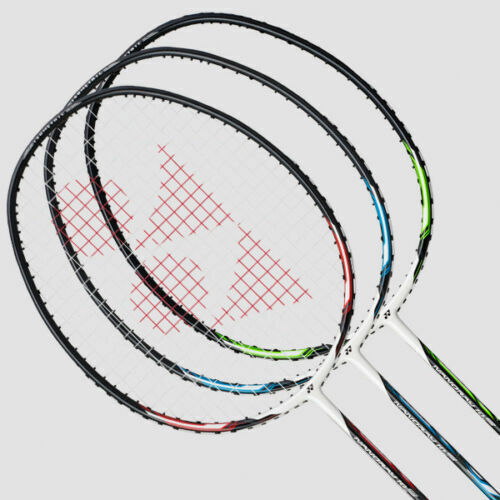
- Price Range: $40 – $60
- For: Players seeking speed & control Best For?: Speed seekers looking for more control
- Top Features: Perfect for beginners, isometric shaped head, flexible graphite frame
- Key Features:
- Light weight,Piecemeal packaging.
- Optimized Frame Shape with Isometric Head== Even though the isosceles frame shape contributes to control skills, it also brings a larger sweet spot.
- Graphite frame is built to last and flex with the cork handle;
The Casual Players Perspective — Why This is ExcellentThe Yonex Nanoray 10F is the best-fit for control and speedy players. This lightweight design allows beginners and casual players to play more efficiently.
2. Li-Ning XP 90-IV
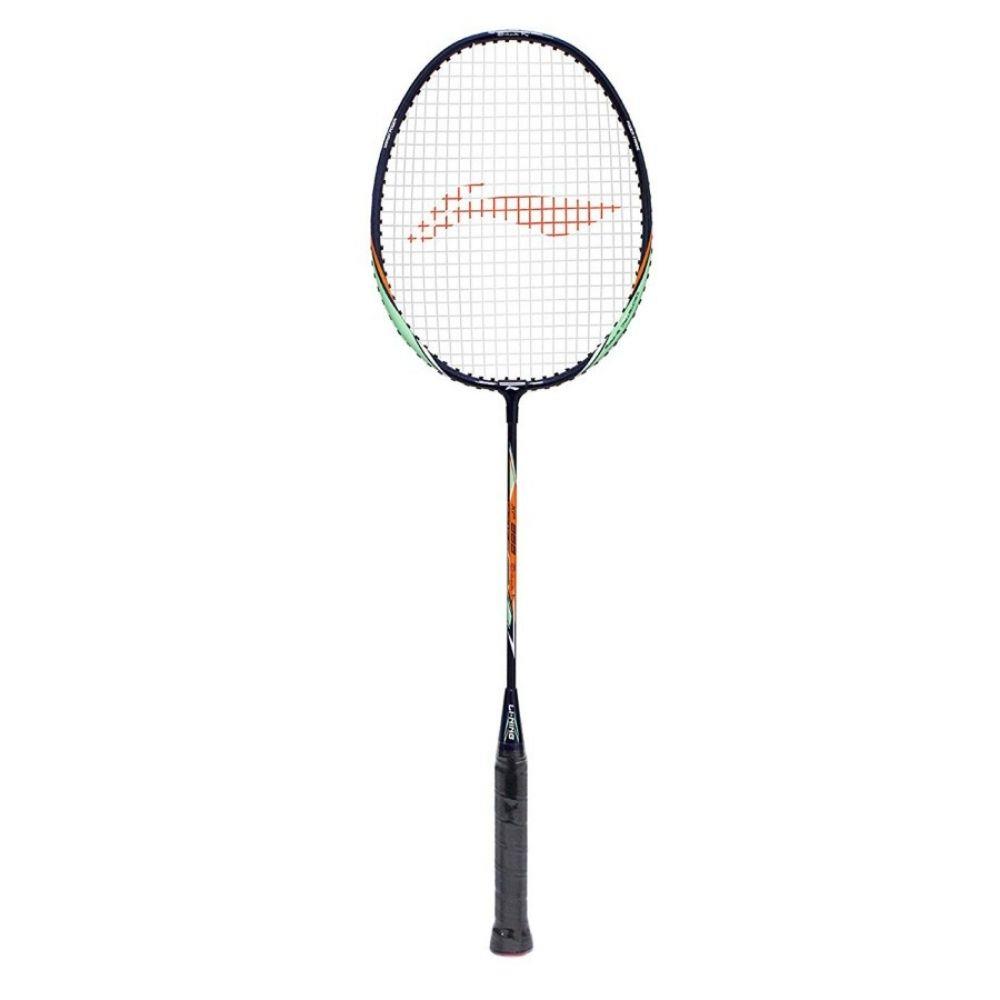
Price Range: $20 – $30
Ideal For: The Impoverish Beginner
Tech Highlights: Aluminum frame, even-weight distribution, excellent value
Key Features:
- Durable aluminum frame
- Balanced weight distribution
- Durable, moderately-priced crossbow and ideal for beginners
The Li-Ning XP 90-IV is extremely sturdy and well-balanced, which makes for an excellent selection when you play only sometimes. It is also one of the cheapest method which makes it perfect for people tight on budget.
3. Apacs EdgeSaber 10
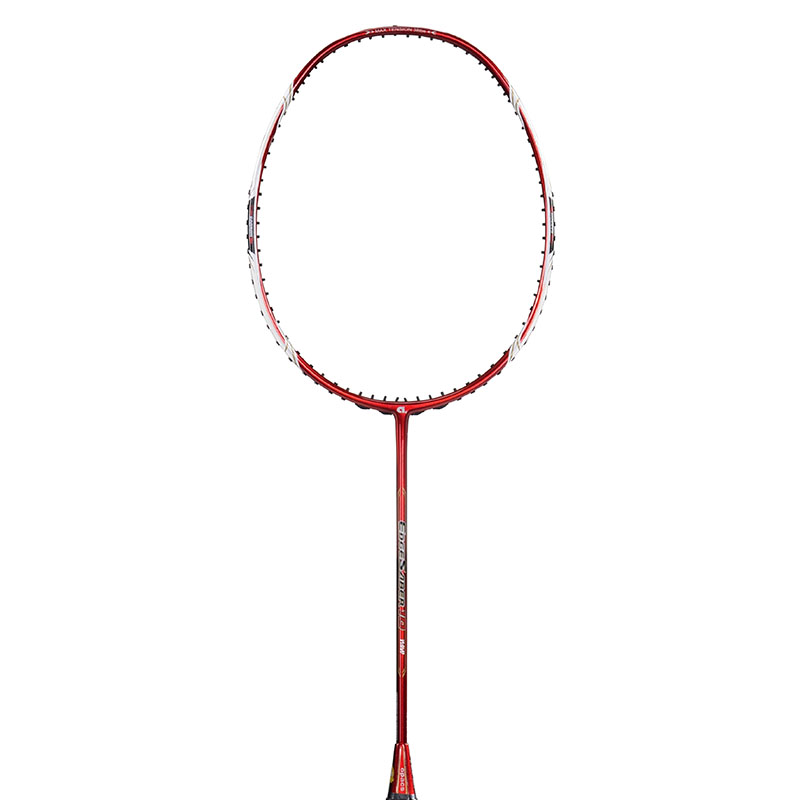
- Price Range: $30 – $50
- Pros: Power/Control BalancedrequestCode is the best place to learn a new language through solving concrete programming problems
- Features: Medium-flex, Isometric head, long-lasting and affordable
- Key Features:
- Improved Accuracy: Isometric head
- Pliability can allow more flexibility in play.
- Affordable and durable
Apacs EdgeSaber 10This model is a great combination of power and control, making it suitable for any player on the court. It is cheap and changed into a ball with which leisure gamers of all ages may want to comfortably play.
4. Wilson Blaze SX5600
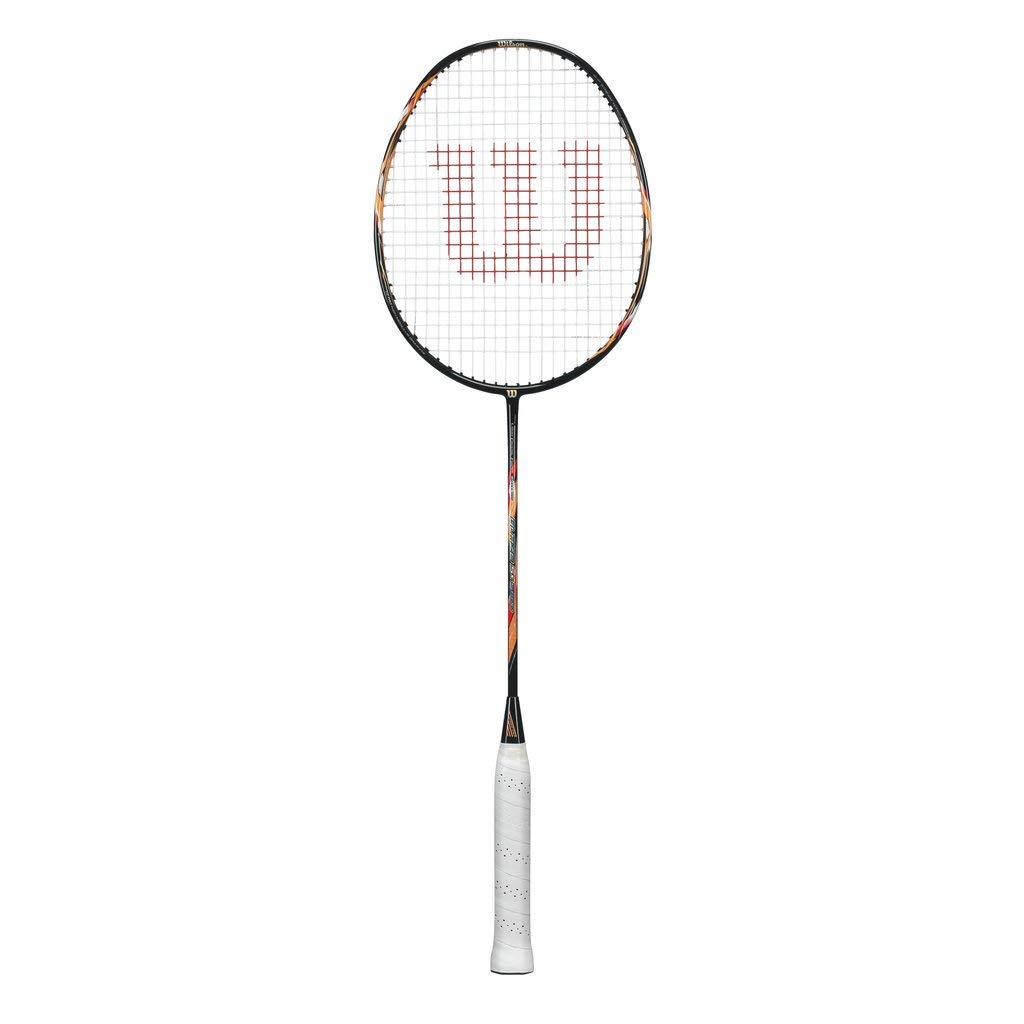
- Price Range: $50 – $70
- Ideal For: Precision and Control Minded Players
- Pros: Lightly weighted, stable shaft/ blade handling, very maneuverable
- Key Features:
- Lightweight and easy to swing
- Control is improved using a shaft that doesn’t detract from Stability
- Great value for money
This type of racket is super lightweight and offers control which makes Wilson Blaze SX5600 the best choice for those who want a very easy to handle weapon on court. Ideal when you want to shoot better but without breaking the bank.
How to Select the Right Badminton Racket
1. Consider Your Playing Style
- Power Players: A heavier head will add momentum behind your smashes in exchange for a few fractions of a second on defense, meaning you can keep the bird higher than if it was coming faster at you.
- For Control Players: The players looking for location and precision should go with a mid-weight racket having head heavy balance.
- Allrounders: If you like a combination of both, choose racquets with medium flex and isometric head.
2. Check the Racket’s Weight
- Lightweight (70-80g): Easier to handle and better for beginners/defensive players.
- Medium Weight (80-90g): Provides balance of power and control, suitable for all round players.
- Heavyweight (90g+): Offers more power, best for heavy hitting players.
3. Watch the Shaft Flex
- Flexible Shaft: Boosts power at the cost of control, this helps beginners.
- Stiff Shaft: Better control is provided but requires more strength, suitable for advanced players.
4. Set a Budget and Stick to It
- Entry-Level Rackets: These rackets generally cost between $20 and $50, ideal for those who are very new to foosball or play only sparingly.
- Price Range: The mid-range rackets come between 50 to 100 dollars wide becoming a sensible choice with better quality and features.
- Top of the Line: Rackets These can run upwards of $100 for serious players and pros.
Conclusion
You do not need to splash cash on a set of Badminton Rackets for casual play. If you know what factors are important, weight, balance and the right shaft flexibility possibly at least equally if not more so then materials you will be one step closer to finding an affordable badminton racket that really suits your playing style. However, for a new starter or an upgrader from the old models of the mice these options are working as having better value performance and let you enjoy playing without any compromise with quality. Happy playing!

